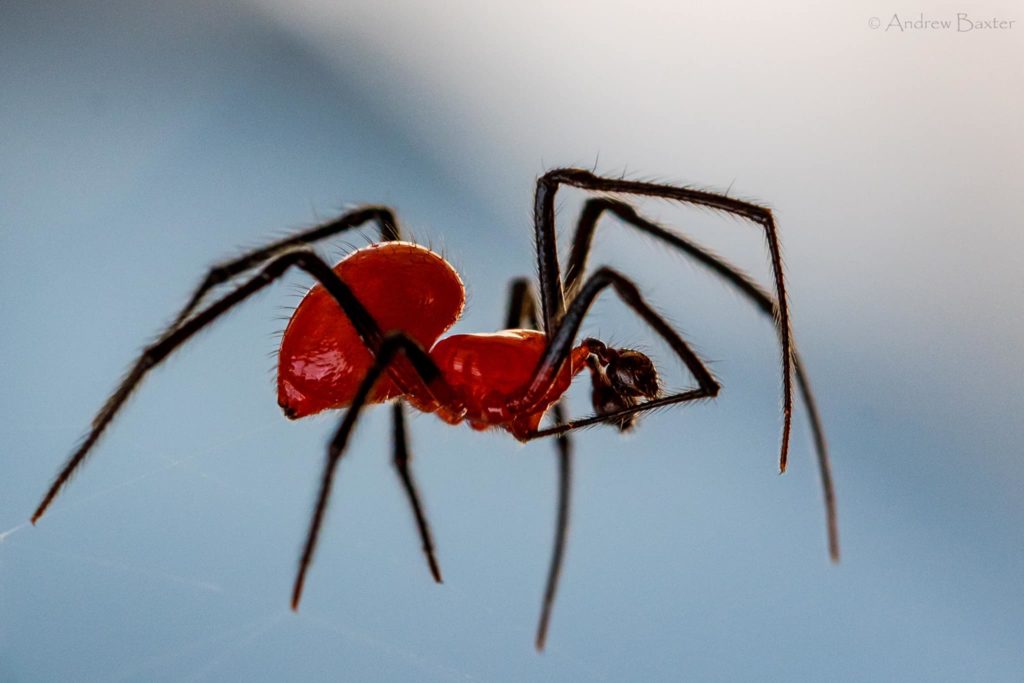Researchers have made two new exciting discoveries on Table Mountain National Park, further contributing to the park’s already rich biodiversity.


Dr. Andrew Baxter found the specimen on the ‘back table’ region of Table Mountain between 500-800 m altitude on west-facing slopes among moist fynbos. He had initially thought it was a common spider but upon feedback from people in the Spider Club of South Africa forum, he returned to collect a live specimen. He told The Spider Club of South Africa that they are unsure what the species is, but believes it could be a new form of Theridiidae or belong to a genus from the family Cyatholipidae. The spiders are small, about 1cm in body size and no evidence of webs was found.


For simplicity, the spider is currently being called a strawberry theridiid or a strawberry button, although it is not within the same genus as a button / wideo spider says Rudolph Steinkampf of the Spider Club.

Dr. Baxter explains that the classification process is lengthy and complex.
“The objective is to seek a description from a Theridiidae (seems likely) expert with a view to determining the taxonomy. Should this spider be an undescribed species then ultimately we would hope for a classification – but as you well know this can be a complex process,” he told the Spider Club of South Africa.
“I would like the community to know that if it does turn out to be a new species, that our wish is to ‘donate’ the naming/nomenclature to a species-naming auction to be facilitated by WWF South Africa, with all the proceeds to accrue to WWF for natural habitat protection. I used to head up fundraising for WWF and a few years ago I auctioned off the naming rights for a new fynbos flower at the Linnaeus Institute in London which enabled WWF to purchase a significant piece of private property – now incorporated into the conservation real-estate of Table Mountain National Park. Hopefully these little red chaps can bring the same conservation outcome.”
The second discovery is a new species of sedge, called ‘the Hidden veldrush’ or Schoenus inconspicuus that was found in the Tokai Park section. According to Tony Rebelo, it is listed as Critically Endagered with extinction, and there are less than 10 plants known to exist in the world, of which almost half are in the Tokai Park section of Table Mountain Park.
The plant was described earlier this year by Dr Tammy Elliott, Doug Euston-Brown and Professor Muthama Muasya at UCT in the journal Phytotaxa. It closely resembles Cape Wire Grass, and one can only tell them apart by looking at the ligules, or the flange on the leaf blade where it curls around the stem. Sedges will have a simple sheath instead of a ligule.
⚠️TMNP Research News⚠️
We are excited to share two amazing discoveries at Table Mountain National Park contributing to…
Posted by SANParks – Table Mountain National Park on Friday, 10 July 2020
Picture/s: Andrew Baxter

